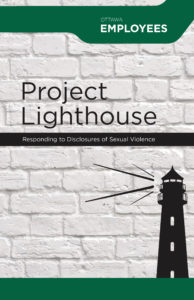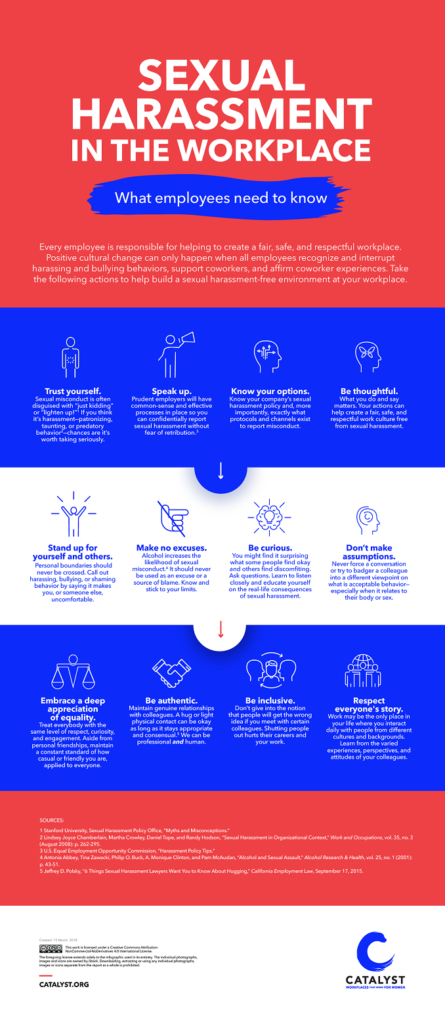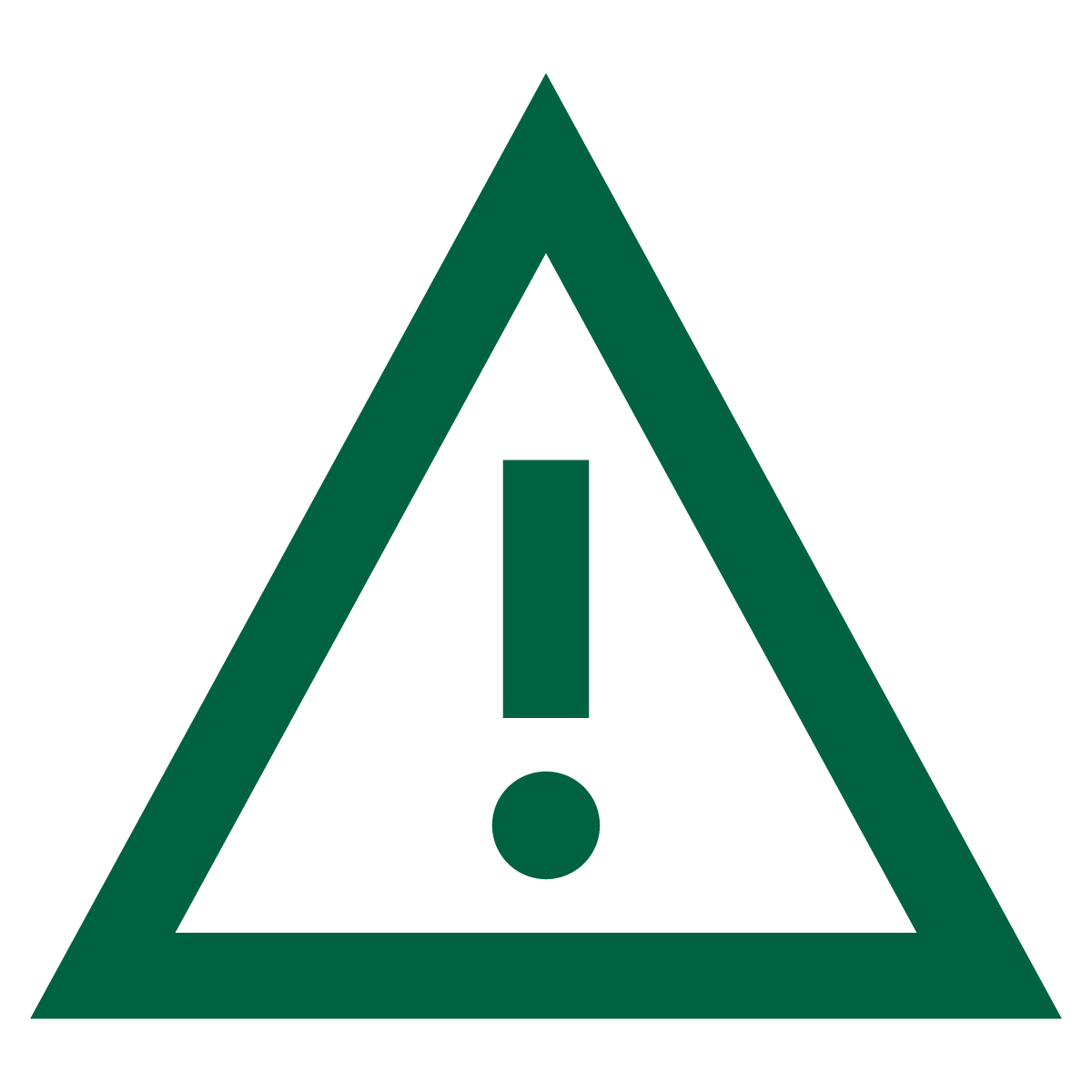Employees
Find resources and information below to help Algonquin College employees understand their role and responsibilities for how to respond to disclosures of sexual assault.
Questions?
projectlighthouse@algonquincollege.com
Angela Briggs
Manager, Counselling Services, Health Promotion & Welcome Centre
613-727-4723 ext. 6465
Sexual Violence Disclosure Brochures for Staff
Responding to Disclosures on Campus Training
This training includes 7 modules with video scenarios, practice quizzes and links to important resources to help you respond supportively and effectively to disclosures of sexual violence on campus.
To take the training, visit:
Employees’ Role in Preventing Sexual Harassment at Work
Videos and Additional Information
Learn more about consent and sexual violence with the videos and information below.
What is Sexual Assault?
Sexual assault is any type of unwanted sexual interaction. A sexual assault can range from unwanted touching to sexual penetration. You can find out more in the college directive SA-16.
What is Sexual Violence?
Any sexual act or act targeting a person’s sexuality, gender identity, or gender expression, whether the act is physical or psychological in nature, that is committed, threatened, or attempted against a person without the person’s consent. Sexual violence includes sexual assault, sexual harassment, stalking, indecent exposure, voyeurism and sexual exploitation. A victim of sexual violence may feel uncomfortable, distressed, frightened, or threatened. You can find out more in the college directive SA-16.
Sexual Harassment
Any unwanted or offensive sexual behavior that creates a hostile or stressful living, learning, or working environment. Sexual harassment can be a single incident or an ongoing pattern of behaviour. Examples of sexual harassment include:
- Unwanted sexual advances
- Unwanted or uninvited touching
- Sexual retaliation or threats
- Sexual jokes or comments
- The displaying of sexually suggestive images
What is Relationship Abuse?
Algonquin College is committed to providing a safe learning environment, but all members of Canadian society are vulnerable to relationship abuse and some members may be particularly vulnerable. Women under the age of 25 make up the highest risk group for sexual violence and women are about eight times more likely than men to experience violence in a relationship. We must all be aware of the indicators of relationship abuse to help those impacted by these behaviours.
Relationship Awareness
Relationship abuse includes any behaviour used to maintain power and control over a current or former intimate partner. Abusive behaviours can take many forms, including:
Physical: Hitting, restraining, or pushing.
Emotional/Psychological: Criticizing, intimidating, threatening, manipulating, or isolating from friends or family.
Sexual: Forced sex, uninvited touching, or unwanted sexual demands.
Financial: Denying access to money or employment, withholding basic needs, or denying human rights.
Relationship abuse is not always easy to recognize. It often requires secrecy and keeping these behaviours hidden from others may make the situation worse. Relationship abuse tends to get worse over time, not better. If you are concerned for yourself or someone else, don’t keep it a secret, reach out and talk to somebody.
Learn more about relationship abuse at The Ottawa Coalition to End Violence Against Women.
What is Consent?
Sexual consent is a clear and voluntary agreement to engage in sexual activity. Consent can only be given if an individual is capable of making an informed decision to participate in the sexual activity in question. This means that everyone involved in a sexual activity must have clearly and freely agreed to that activity; both before and during the sexual activity.
It is also imperative that everyone understands the following:
Consent is ALWAYS required. Without consent, a sexual activity is sexual assault.
You can find out more in the college directive SA-16.
Disclosure
A disclosure of sexual violence is when someone shares information about an incident of sexual violence. A person impacted by sexual violence is not required to make a formal complaint in order to obtain support, services, or accommodations for their needs.











